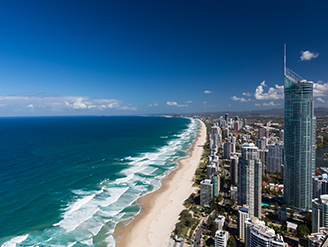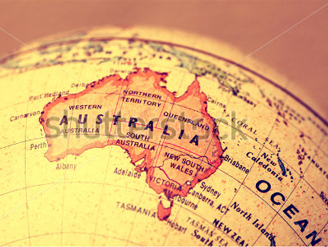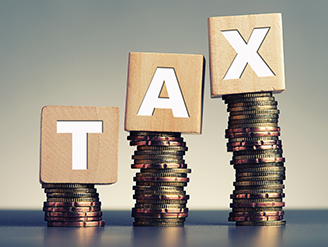For millions of people every year, Australia is their travel destination of choice for their annual holiday. But young people aged between 18 years and 30 years have an even greater option when coming to Australia – they can holiday and work around Australia for up to 2 years so long as they meet the eligibility criteria. This provides young people from all around the world an opportunity to explore all that Australia has on offer.

This guide is designed to provide an insight for backpackers looking at coming to Australia on a working holiday. The guide while only basic provides an insight for backpackers on Australia’s Working Holiday Visa.
What Australia’s Working Holiday Visa?
The Australian Working Holiday Visa is a visa that permits young people aged between 18 years and 30 years from designated countries to come to Australia on a working holiday. The intention of the Working Holiday Visa is to provide cultural experiences for young people who are members of reciprocal countries. It is also intended to boost the workforce for certain industries in Australia that face a labour shortage. Once a backpacker has their Working Holiday Visa granted they have one year to enter Australia.

Can anyone come to Australia on a Working Holiday Visa?
Not all backpackers qualify for an Australian Working Holiday Visa. For a backpacker to be eligible for an Australian Working Holiday Visa they must hold a valid and current passport from a country that is recognised for the purposes of the Working Holiday Visa scheme. There are two separate Working Holiday Visa classes, Subclass 417 and Subclass 462. Dependent upon which Subclass of visa the backpacker is applying for will determine which country they need to be a passport holder of.
To qualify for a Subclass 417 visa, backpackers must be the holder of a passport from one of the following countries:
- Canada
- Republic of Cyprus
- Denmark
- Estonia
- Finland
- France
- Germany
- Hong Kong
- Republic of Ireland
- Italy
- Japan
- Republic of Korea
- Malta
- Netherlands
- Norway
- Sweden
- Taiwan
- United Kingdom
To qualify for a visa under Subclass 462, the backpacker must be the holder of a passport from one of the following countries:
- Argentina
- Bangladesh
- Chile
- China
- Indonesia
- Malaysia
- Poland
- Portugal
- Slovak Republic
- Slovenia
- Spain
- Thailand
- Turkey
- USA
- Uruguay
Backpackers will also need to meet the following requirements before they become eligible to be granted a Working Holiday Visa:
- The backpacker must be be of good character with no criminal record;
- The backpacker must never have been rejected, deported or detained in any of the eligible countries;
- The backpacker must meet the health requirements to obtain a Working Holiday Visa;
- The backpacker must not be accompanied by dependent children at any time during their stay;
- The backpacker must have sufficient funds to support themselves on arriving in Australia;
- The backpacker must not have previously entered Australia on a Working Holiday Visa
- A backpacker applying for a Subclass 462 visa must meet the educational requirements; and
- The backpacker must have a basic ability to speak and understand English.

What does a Backpacker need to do to apply for a working holiday visa for Australia?
Most backpackers can apply for a Working Holiday Visa online through the Department of Immigration and Broder Protection. However, some backpackers will be required to apply by using a hard copy paper application. It is recommended that backpackers looking to apply for a Working Holiday Visa use thee services of a specialised agent. This will ensure that the application is prepared properly and there is a reduced chance that the Working Holiday Visa application will be rejected.
There is a fee for both Subclasses of Working Holiday Visa’s. If the applications are submitted online the fee $440.00 AUD however there is an additional $80.00 AUD fee for a hard copy visa application.
Not every backpacker who applies for a Working Holiday Visa will be accepted as there are quotas on how many backpackers from each of the eligible countries will be accepted into Australia each year. For this reason it is recommended that backpackers considering a working holiday in Australia apply for their visa as soon as possible.
When the backpacker has filed their Working Holiday Visa they will generally find out if their application has been approved within about 21 days or in some instances backpackers may have their visa granted the following day if they have applied online. Once the Working Holiday Visa is granted backpackers have 12 months to enter Australia.
Can Backpackers stay for a 2nd Year in Australia?
If a backpacker on a working holiday has entered into Australia on a Subclass 417 Working Holiday Visa they may be eligible to obtain a Second Year Visa. To become eligible backpackers have undertaken specified work in regional Australia during the first 12 months of arriving in Australia.
Backpackers must also have completed to specified working requirements for a full three months which is calculated as being 88 full days of employment.
For work to be considered as classified work it must be undertaken in one of the following industries:
- Plant and animal cultivation, including harvesting, packing of crops, and/or pruning and trimming;
- Fishing and pearling;
- Tree farming and felling;
- Mining; or
- Construction.
Most backpackers complete their 88 days of classified employment by working on farms or fruit and vegetable picking as these jobs are easy to find. Before backpackers start working in their specified job, they should ensure that the working location is classified as regional Australia for the purposes of a Second Year Visa.

What types of Work can Backpackers do in Australia?
Backpackers on a working holiday in Australia are able to engage in any form of lawful employment. There are no restrictions placed on the jobs that backpackers can undertake. The only restriction is that backpackers are not able to work for a single employer for a period exceeding 6 months in duration.
Before being able to work in Australia it is essential that backpackers obtain an Australian Tax File Number. As a backpacker requires a physical address before they apply for an Australian Tax File Number they usually wait until they arrive in Australia before applying. There are specialised agents who will apply for a Tax File Number on a backpackers behalf to make the process easier for backpackers.

Are Backpackers on a Working Holiday Required to have Health Insurance?
While it isn’t compulsory for backpackers on a working holiday in Australia to have Health Insurance, it is highly recommended. Not all backpackers on working holidays in Australia are eligible for free healthcare so any medical bill can become quite expensive.
Health insurance is relatively cheap considering the fees charged by medical professionals and health care institutions. And while most backpackers won’t expect things to go wrong with their health while they are in Australia sometimes accidents and illness can come along quite unexpectedly.
By having health insurance backpackers can be assured that they can receive the health care treatment they require without being left out of pocket for thousands of dollars.
Backpackers should also consider having travel insurance. Travel insurance is designed to get backpackers on working holidays in Australia home if they receive any illness or injury that is significantly serious.
Are Backpackers Required to Have an Australian Bank Account?
For backpackers to get for the work they perform in Australia they will need to have an Australian Bank Account. It is advisable that backpackers open a bank account within the first month of arriving in Australia. Opening a bank account in Australia is relatively simple and all a backpacker is required to do is present their passport and other relevant documentation and bank staff will open their bank account while the backpacker waits.
Backpackers need to be mindful that it can take up to 21 working days to receive a new key card for their bank account to access their money conveniently. However, backpackers can still go into the bank branch and undertake manual transactions while waiting on the key card to be delivered.
Do Backpackers have to Pay Tax on their Working Holiday?
In short, yes. All backpackers are required to pay tax on the income that they receive from employment. The rate of tax that a backpacker on a working holiday in Australia is required to pay is dependant upon a number of factors such as whether they are considered residents or non residents for tax purposes. If a backpacker on a working holiday in Australia is able to show that they are a resident for tax purposes they will be taxed at a lower rate than backpackers considered to be non residents.
Backpackers should receive specialist advice from a tax agent who specialises in tax backpackers. This agent will be able to ensure that the backpacker does not pay to much tax and is entitled to a tax refund when they either leave Australia or at the end of the financial year.
What is superannuation and do Backpackers receive Superannuation?
Superannuation is Australia’s answer to the old age pension. Superannuation was introduced by the Australian government to offset the costs involved in paying an old age pension. Once a backpackers wage is in excess of $450.00 per month their employer is required by law to pay 9.5% of the backpackers wage into a superannuation fund.
Backpackers can set up their own superannuation account for this money to go into. This is the preferred option to having multiple superannuation accounts as it makes it easier for the backpacker on a working holiday in Australia to keep track of their superannuation funds.
Once the backpacker leaves Australia when their visa is either cancelled or expires they are entitled to access their superannuation.
Backpackers need to bear in mind that when they access their superannuation they will be taxed. The amount they are taxed on their superannuation is dependent upon the amount of superannuation that they have accumulated.
Conclusion
A working holiday in Australia provides young people from around the world with an opportunity to experience Australia’s culture while also exploring the sites and attractions that Australia offers. As backpackers are also permitted to work they are able to offset some of their travel expenses through their income.
Backpackers should seek the advice of a tax agent who specialises in taxation for backpackers so that they can maximise their disposable income while they are on their working holiday in Australia. Bu following this guide and seeking specialist advice backpackers are assured of having a working holiday that they will remember for the rest of their lives.
Question & Answer Board
Leave a question for us to answer or read what others have said below
Your Question :
Workers Corner
-

A Backpackers Guide to Second Year Visa
-

A SUPERANNUATION GUIDE FOR BACKPACKERS IN AUSTRALIA
-

Everything A Backpacker Needs to Know About an Australian Working Holiday Visa
-

New Bipartisan Working Holiday Agreement between Australia and Slovenia
-

Superannuation for Backpackers Working in Australia
-
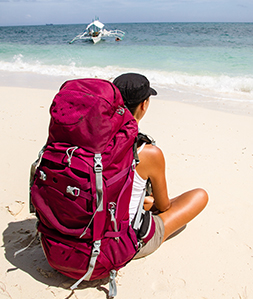
Tax Basics for Backpackers in Australia
-

Tax Refunds for Backpackers on Working Holidays in Australia
-
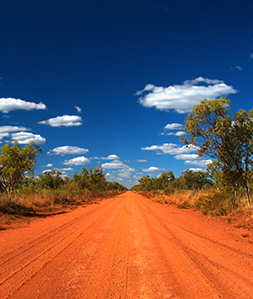
The Backpackers Guide to Staying Safe in Australia















